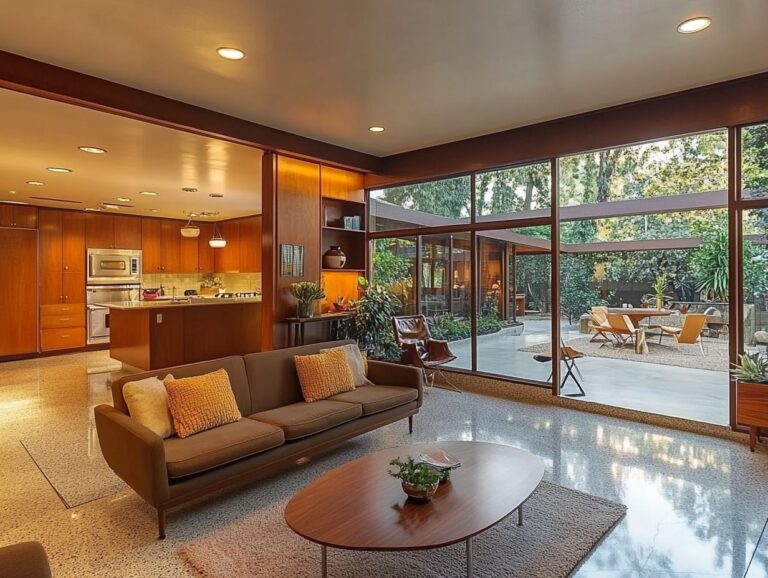Rent vs. Buy: What’s Really Worth It in 2024?
Deciding whether to rent or buy a home is a pretty big choice you’ll face in 2024, shaped by all kinds of personal and market factors.
This article digs into the financial implications of both options, comparing costs and long-term benefits to help you make informed decisions. It also looks at lifestyle considerations, weighing the flexibility of renting against the stability of owning your own place. Plus, you’ll get a look at current real estate trends to help you navigate the complexities of this important decision.
Overview of the Debate
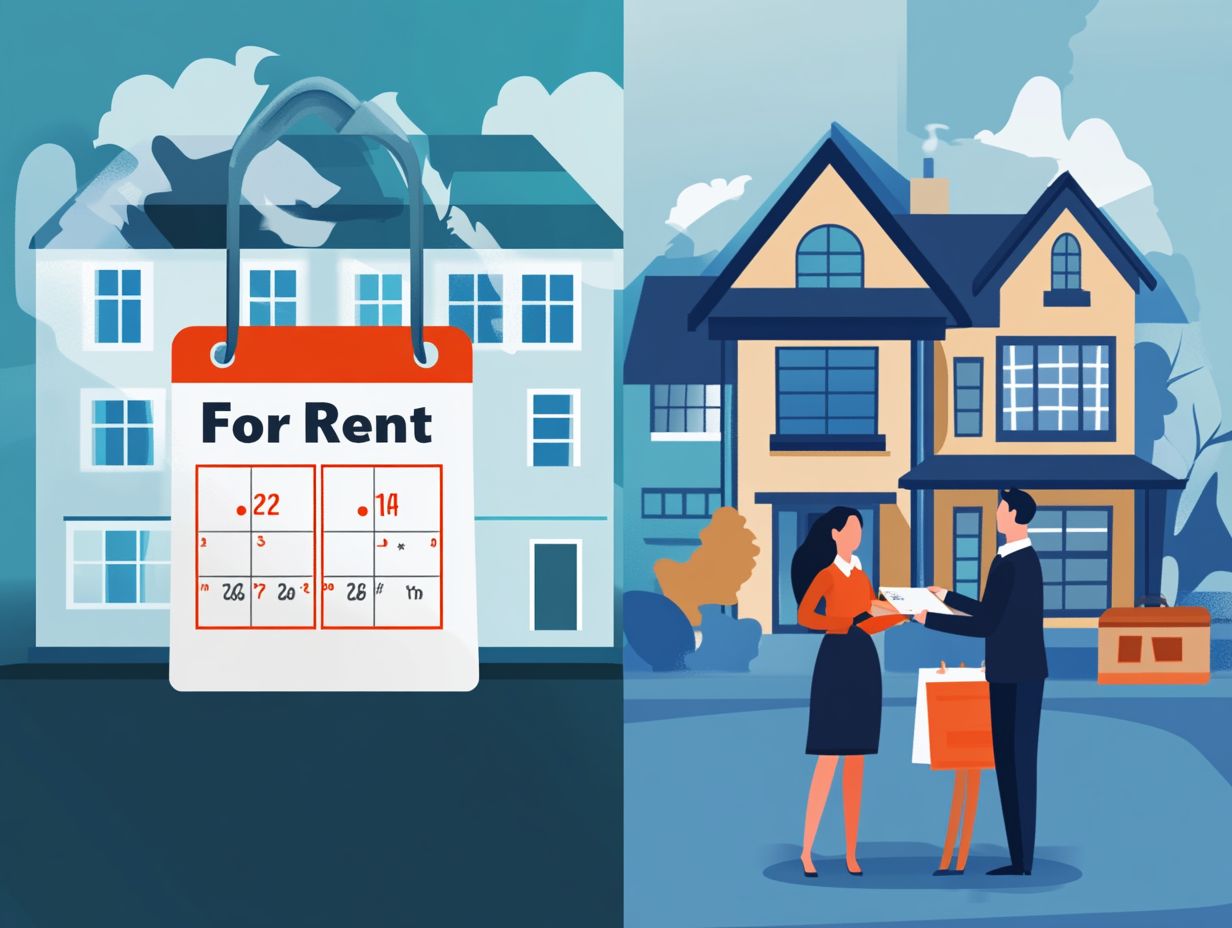
The ongoing debate between renting and buying a home is a big part of the real estate conversation, and you might find yourself grappling with this decision too.
It’s influenced by a bunch of financial factors, your personal goals, and the current market conditions. Understanding what each option means is super important, especially in today’s unpredictable housing market where affordability and investment potential are key for both first-time buyers and seasoned investors like yourself.
Financial Considerations
In the rent versus buy debate, you have to consider a few key financial factors, such as the initial down payment, monthly payments, and any potential closing costs that come with buying a home.
By wrapping your head around these financial details, you can better understand future expenses like property taxes and utilities. This will help you weigh the investment returns of homeownership against renting in today’s market.
Cost Comparison and Long-Term Implications
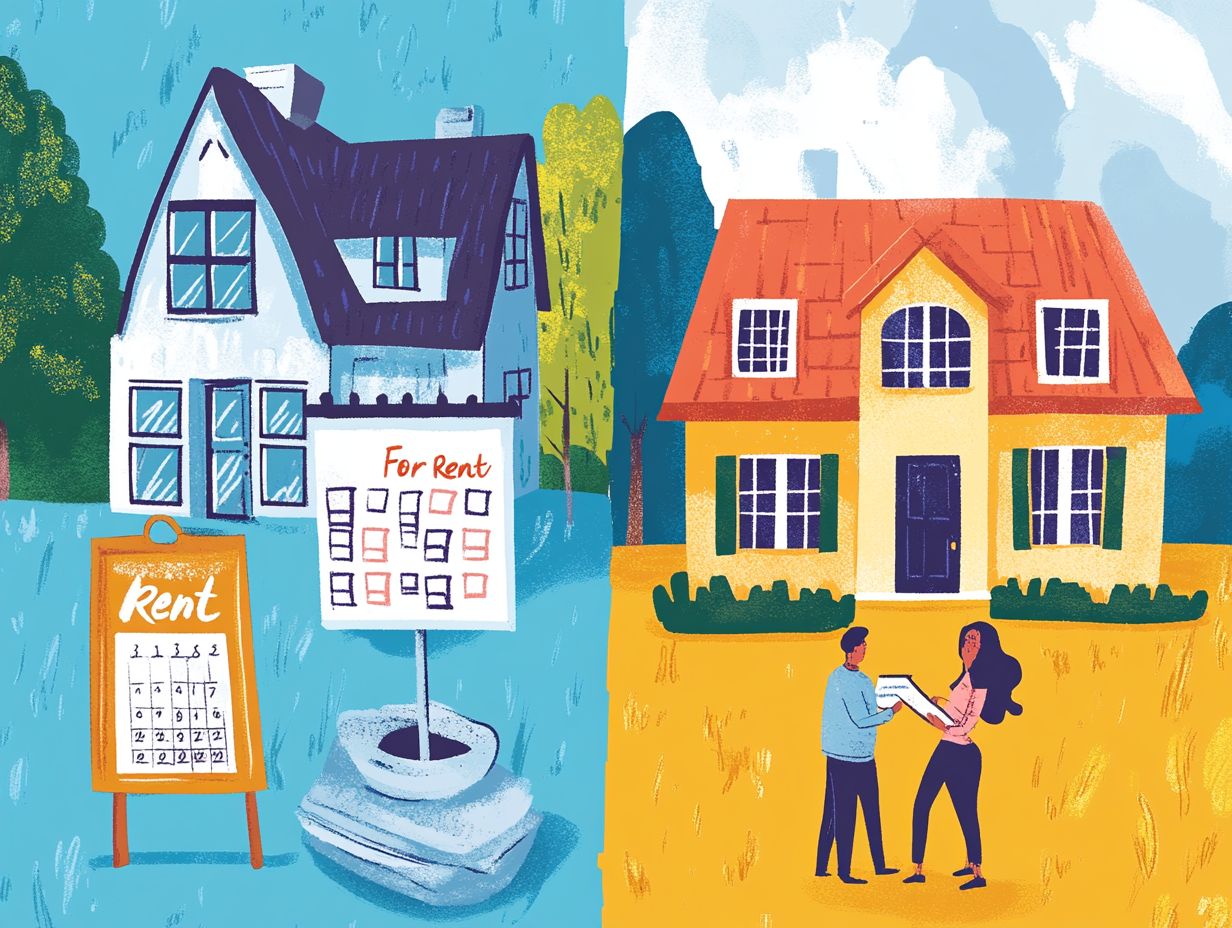
Cost comparison is key when you’re weighing the pros and cons of renting versus buying a home. You’ll want to evaluate rent prices against the costs of ownership, which include maintenance expenses, property value appreciation, and any potential debt from a home equity loan.
These long-term implications can really impact your financial stability and lifestyle choices down the line.
If you’re trying to decide which path to take, it’s crucial to understand how maintenance responsibilities can strain your budget. Renters usually have fewer immediate out-of-pocket costs since maintenance is typically the landlord’s job, but they miss out on the chance to build equity as property values rise.
On the flip side, homeowners can benefit from appreciation in property value, which can boost their net worth and open the door to loans through equity. This decision affects not just your finances but also your lifestyle, influencing factors like mobility and stability in your living situation.
So, it’s important to evaluate your personal priorities before making that commitment.
Lifestyle Factors
When you’re deciding between renting and buying, it’s not just about the money; lifestyle factors are super important too.
Think about things like how flexible you want to be when it comes to moving, your level of commitment to a community, and how desirable the neighborhood is that you choose.
All these factors can really impact your overall satisfaction and quality of life, especially if you consider community amenities and school districts if you have a family.
Flexibility and Convenience
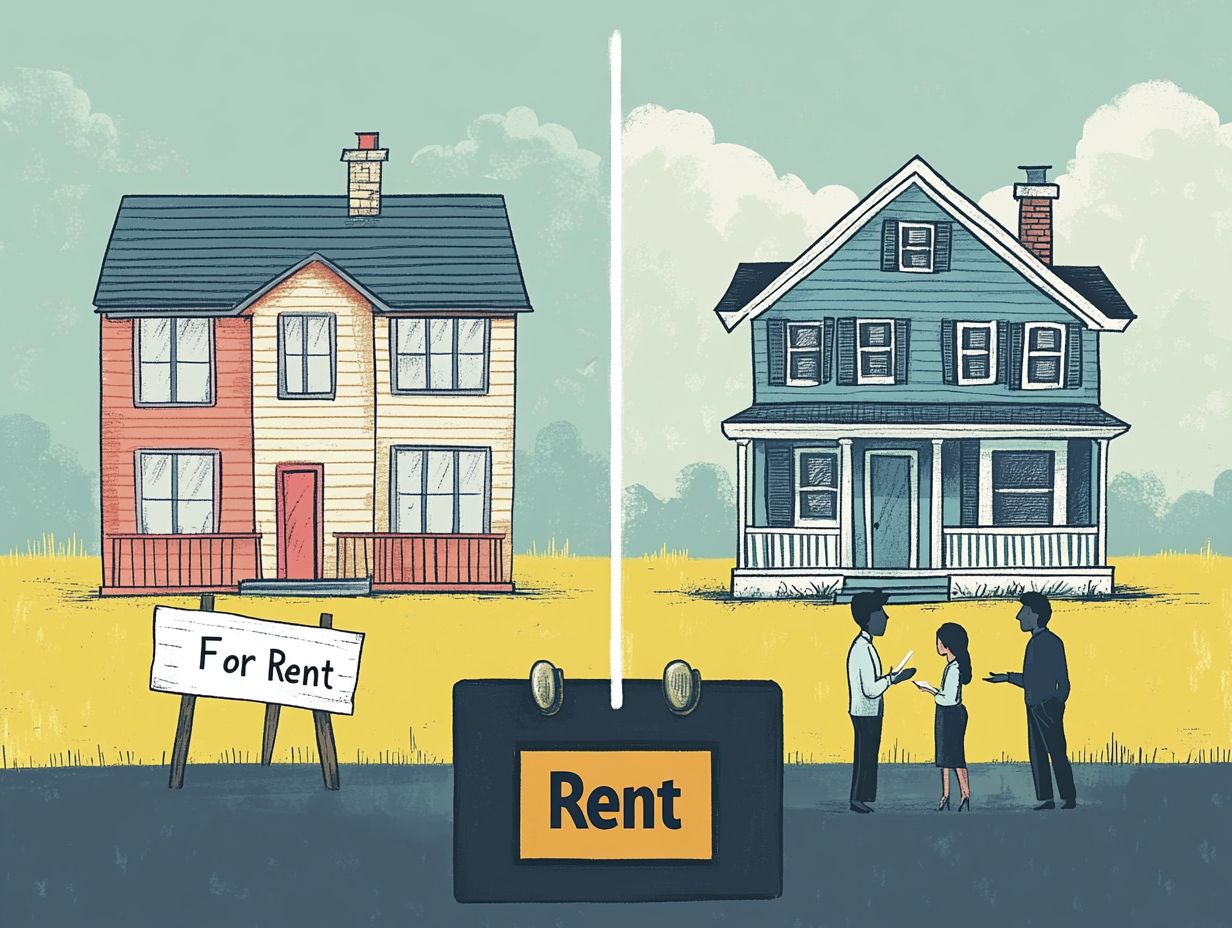
Renting often gives you more flexibility and convenience than homeownership does, letting you pack up and move without the stress of a long-term commitment or the headaches of complex lease agreements. This kind of flexibility can be a game-changer if you prioritize mobility for work or personal reasons, making it easier to handle tenant rights and property management without all the extra baggage.
Plus, as a renter, you typically face a lower financial commitment upfront. Usually, you only need to deal with deposits and the first month’s rent, which is way less than a hefty down payment.
Regarding moving costs, they’re usually less intimidating when you’re switching between rental properties, especially since many leases are designed for shorter timeframes. This adaptability means you can jump on new job opportunities or life changes without the long-term consequences that come with buying a home.
So, if you value dynamic living arrangements, the perks of renting really stand out.
Real Estate Market Trends
Understanding real estate market trends is key to navigating the rent versus buy debate. Fluctuating market conditions can really influence your decision based on current economic factors, supply and demand dynamics, and the overall viability of the housing market.
Staying informed about these trends is crucial for you to make smart investment choices, whether you’re leaning towards renting or buying a property.
Current State of the Housing Market
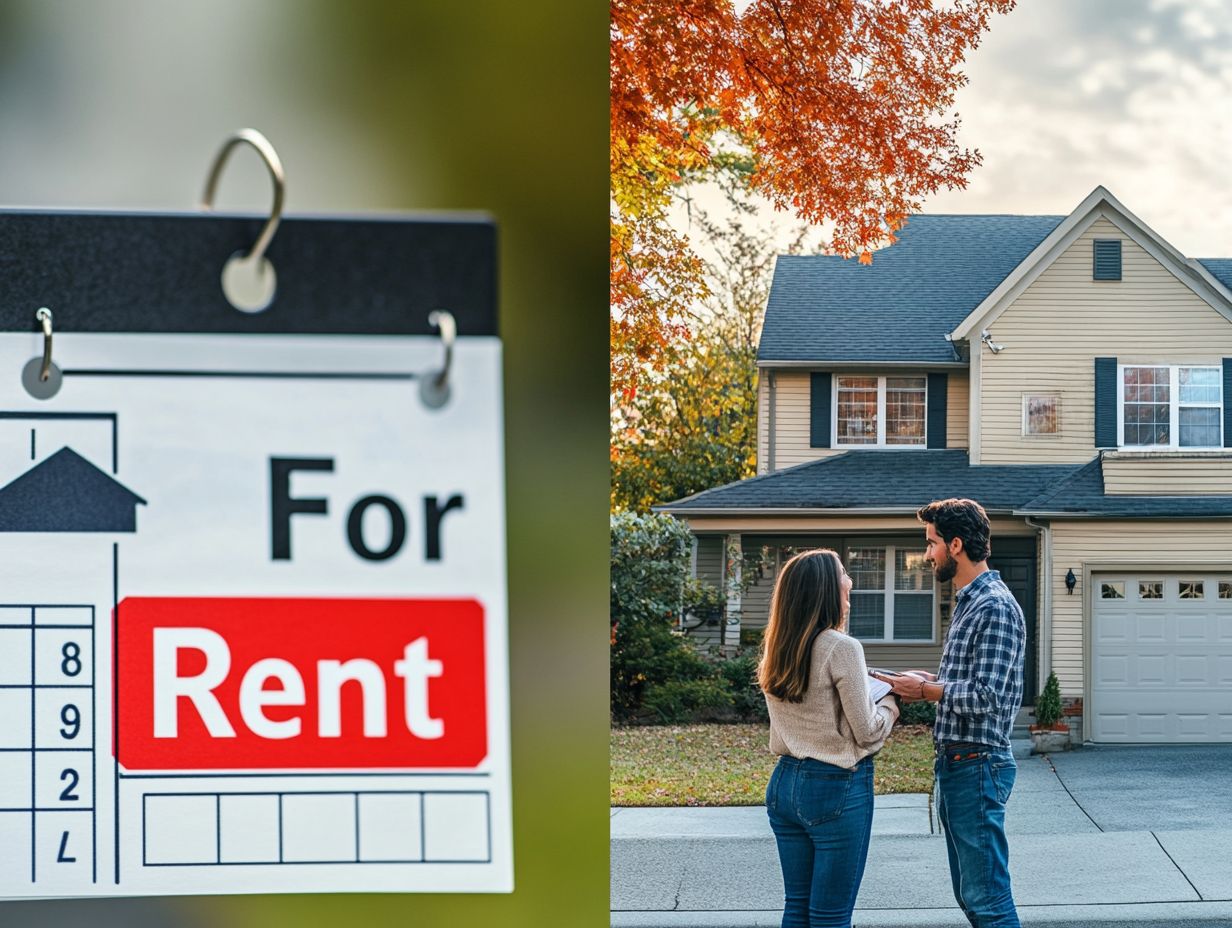
The current housing market is a bit of a mixed bag, and it can really influence whether you should rent or buy. Interest rates and the balance between a buyer’s market and a seller’s market play key roles in your decision-making process. By grasping these conditions, you can navigate the complexities of home buying and figure out which option makes the most sense for you.
As interest rates keep changing, you might find yourself weighing the long-term benefits of buying against the potential savings of renting, especially in a competitive market. With rising costs making homeownership harder to reach in some areas, many people are leaning toward rental properties that offer flexibility without the stress of hefty mortgages.
Concurrently, real estate trends are showing shifts in inventory levels and buyer demand, which means you’ll want to carefully consider the timing of your decisions as a renter. All of these factors create a lively landscape where understanding the market nuances can enable you to make informed choices that align with your financial goals.
Making the Decision: Renting or Buying?
When you’re deciding whether to rent or buy a home, it’s important to think carefully about several factors that can really affect your financial future, lifestyle, and investment potential.
You should evaluate your affordability index, get a grasp on homeownership rates, and figure out how each option fits with your long-term goals and the current economic climate.
Taking the time to weigh these factors can help you make a choice that works best for you.
Factors to Consider and Decision-Making Strategies
When you’re weighing the factors for your rent versus buy decision, it’s super important to dive into a thorough market analysis and risk assessment. You want to get a clear picture of how the cost of living in your desired area affects your financial planning.
Figuring out buyer incentives and what each option really means for you can steer you toward a smarter choice.
Don’t forget to evaluate the long-term financial implications, like property appreciation and potential tax benefits, because they can really tip the scales in this debate. As a prospective buyer, you should also think about those immediate costs, such as down payments and maintenance, and how they stack up against the relative ease of renting, which usually comes with fewer responsibilities.
Getting a handle on these dynamics helps you assess not just your current financial readiness but also your future economic stability. So, capturing a complete understanding of your personal goals and lifestyle preferences is key to navigating this crucial decision effectively.
